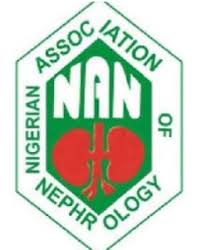Speaking on the issue, Professor Jacob Awobusuyi, President of both associations and a professor at the Lagos State University College of Medicine, highlighted the major challenges hindering organ transplantation in Nigeria. He noted that while many patients can afford transplant procedures, the lack of suitable organ donors remains a significant obstacle.
Addressing Cultural and Ethical Barriers
Awobusuyi emphasized that public misconceptions and cultural beliefs surrounding organ donation contribute to the resistance against the practice. While many countries, including the United States, the United Kingdom, and Germany, have successfully integrated deceased organ donation into their healthcare systems, Nigeria lags due to low awareness and ethical concerns.
To address this, the associations are working towards implementing a national organ donation system that allows organs from brain-dead individuals on life support to be donated to patients in need. However, he stressed that family consent remains paramount, as no hospital or government agency can authorize organ retrieval without approval from the deceased’s next of kin.
Building a National Organ Donation Network
A key aspect of the initiative is to establish a nationwide organ distribution system, ensuring that organs from donors in any part of Nigeria can be matched and transported to recipients across the country. To achieve this, a central working committee, including specialists in nephrology, ophthalmology, and liver transplantation, is collaborating with both government agencies and Nigerian medical experts in the diaspora.
Public Awareness and Overcoming Misconceptions
A major barrier to organ donation in Nigeria is the misconception that organ harvesting is linked to rituals or illegal activities. Awobusuyi reassured the public that the process is legal, ethical, and follows global medical standards.
He underscored the need for intensive public awareness campaigns, urging the government, media, and stakeholders to educate Nigerians on the lifesaving potential of organ donation. He believes that with proper sensitization, more people will embrace the practice, ensuring that those in need of kidneys, livers, hearts, and corneas have access to life-saving transplants.
Ultimately, the initiative aims to establish an efficient organ donation system in Nigeria, ensuring that no life is lost due to the unavailability of transplantable organs.
